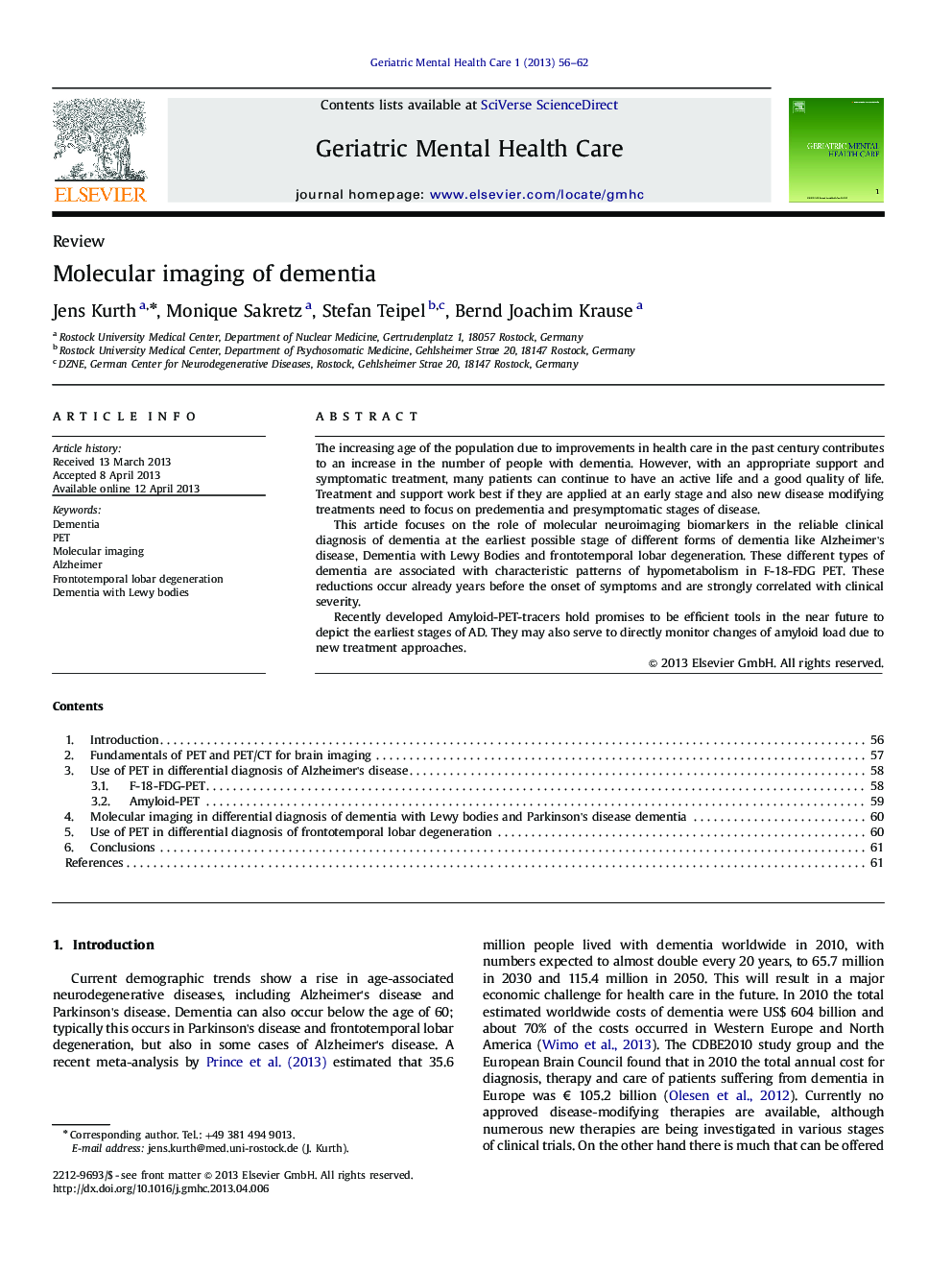| Article ID | Journal | Published Year | Pages | File Type |
|---|---|---|---|---|
| 909188 | Geriatric Mental Health Care | 2013 | 7 Pages |
The increasing age of the population due to improvements in health care in the past century contributes to an increase in the number of people with dementia. However, with an appropriate support and symptomatic treatment, many patients can continue to have an active life and a good quality of life. Treatment and support work best if they are applied at an early stage and also new disease modifying treatments need to focus on predementia and presymptomatic stages of disease.This article focuses on the role of molecular neuroimaging biomarkers in the reliable clinical diagnosis of dementia at the earliest possible stage of different forms of dementia like Alzheimer's disease, Dementia with Lewy Bodies and frontotemporal lobar degeneration. These different types of dementia are associated with characteristic patterns of hypometabolism in F-18-FDG PET. These reductions occur already years before the onset of symptoms and are strongly correlated with clinical severity.Recently developed Amyloid-PET-tracers hold promises to be efficient tools in the near future to depict the earliest stages of AD. They may also serve to directly monitor changes of amyloid load due to new treatment approaches.
